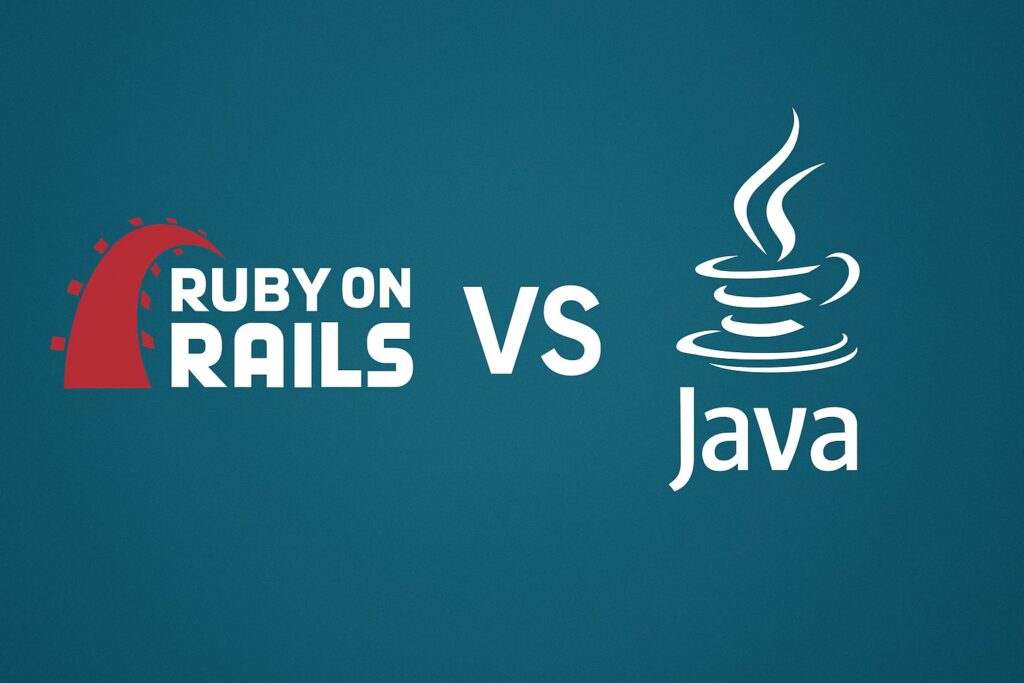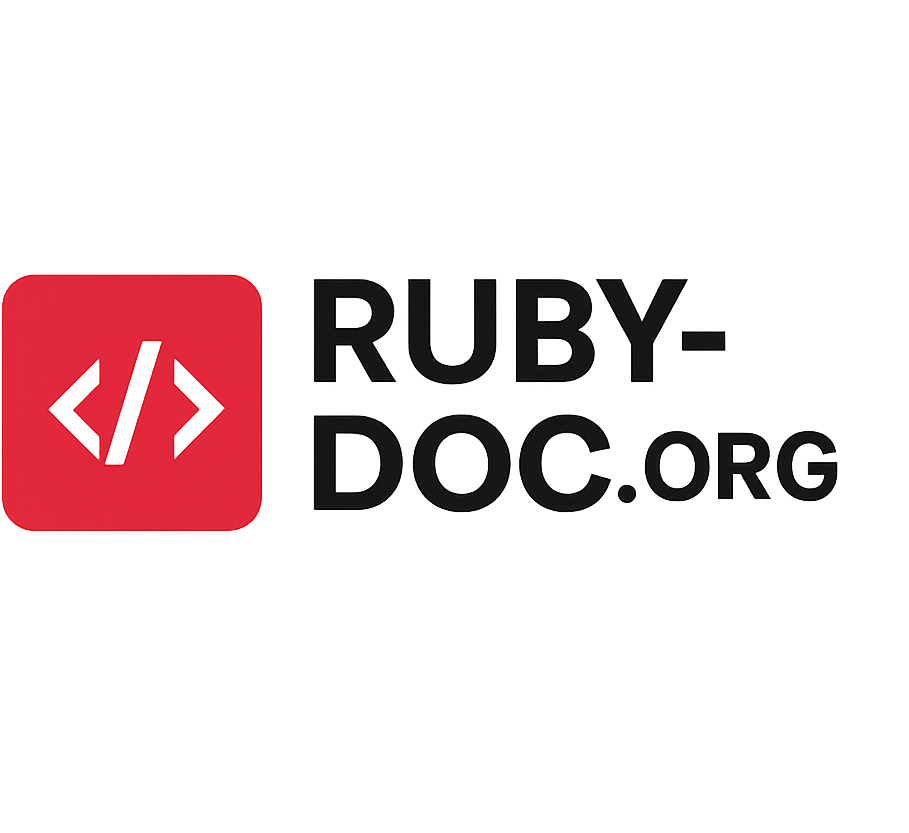
When deciding on the best technology stack for building web applications, two popular options frequently arise: Ruby on Rails and Java. Each has a long history, a strong developer community, and a unique approach to solving modern development challenges. However, choosing the right one can be difficult without understanding their core differences, advantages, limitations, and ideal use cases. In this in-depth comparison of Ruby on Rails vs Java, we will explore everything from architecture and performance to scalability and developer productivity—helping you make a well-informed decision for your next project.
1. What Is Ruby on Rails?
Ruby on Rails, often shortened to Rails, is an open-source web application framework written in the Ruby programming language. It was created by David Heinemeier Hansson in 2004 and follows the Model-View-Controller (MVC) architecture.
Rails emphasizes two key principles:
- Convention over Configuration (CoC): Developers follow established conventions rather than writing extensive configuration files.
- Don’t Repeat Yourself (DRY): Encourages reusable code to minimize repetition.
Rails is designed to make web development faster and more enjoyable for developers by reducing boilerplate code and simplifying complex processes.
Notable Companies Using Ruby on Rails
- GitHub
- Shopify
- Basecamp
- Airbnb (early versions)
- Twitch (early infrastructure)
2. What Is Java?
Java is a general-purpose, object-oriented programming language developed by Sun Microsystems (now owned by Oracle) in 1995. It is known for its portability across platforms through the Java Virtual Machine (JVM) and has been a mainstay in enterprise software, Android development, and large-scale systems.
Unlike Rails, Java is not a web framework. However, Java supports multiple web frameworks like:
- Spring Boot
- JavaServer Faces (JSF)
- Play Framework
- Struts
When people compare Ruby on Rails vs Java, they’re typically comparing Rails with Java-based frameworks, most commonly Spring Boot.
Notable Companies Using Java
- Amazon
- Netflix
- Uber
- Spotify
3. Language Comparison: Ruby vs Java
Before comparing the frameworks, let’s briefly contrast the languages themselves.
| Feature | Ruby | Java |
|---|---|---|
| Type System | Dynamically typed | Statically typed |
| Syntax | Concise and readable | Verbose and explicit |
| Compilation | Interpreted | Compiled to bytecode (JVM) |
| Performance | Slower than Java | High performance |
| Learning Curve | Beginner-friendly | Steeper, especially for OOP |
| Flexibility | Very flexible and dynamic | More rigid and structured |
Ruby is highly expressive, with syntax that resembles natural English. Java, on the other hand, is more verbose but also more rigid, making it easier to maintain at scale in large enterprise settings.
4. Framework Comparison: Ruby on Rails vs Java (Spring Boot)
Now let’s compare Ruby on Rails and Java (primarily via Spring Boot) as web frameworks:
4.1 Speed of Development
- Ruby on Rails: Prioritizes developer happiness and speed. With built-in scaffolding, conventions, and code generators, developers can build full-featured applications rapidly.
- Java (Spring Boot): More setup is required upfront. While Spring Boot has improved developer experience significantly, it’s still more verbose and less “magical” than Rails.
Verdict: Rails wins for rapid prototyping and MVPs.
4.2 Performance and Speed
- Rails: Ruby is an interpreted language and generally slower in execution compared to Java. While performance can be improved through optimization, it doesn’t match Java’s raw speed.
- Java: Compiled to bytecode and runs on the highly optimized JVM. Java excels at multi-threading, concurrent processing, and handling millions of requests efficiently.
Verdict: Java wins for performance-intensive applications.
4.3 Scalability
- Rails: Scales well for small to mid-sized applications. Larger applications may require service-oriented architecture, caching strategies, and background jobs to maintain performance.
- Java: Built for scalability. It is widely used in high-traffic, enterprise-scale applications. Microservices architecture, asynchronous processing, and load balancing are natively supported.
Verdict: Java is more scalable for large-scale enterprise solutions.
4.4 Ecosystem and Libraries
- Rails: Offers a rich set of gems (libraries) that extend its functionality. However, it’s focused mainly on web development.
- Java: Extensive ecosystem with libraries for everything from AI and machine learning to networking, IoT, and data processing.
Verdict: Java has a broader ecosystem, but Rails has better web-focused libraries.
4.5 Community and Support
- Rails: Backed by a passionate and helpful community. Numerous tutorials, guides, and forums are available.
- Java: Massive global community, especially among enterprise and academic users. Long-term support is assured for core Java.
Verdict: Both communities are strong, but Java has broader institutional backing.
5. Security
- Rails: Comes with built-in security features like CSRF protection, SQL injection prevention, and XSS mitigation. Developers must stay updated with patches and best practices.
- Java: Enterprise-grade security features, especially with Spring Security. More flexibility and complexity in implementation.
Verdict: Java provides more advanced security controls for enterprises.
6. Tooling and IDE Support
- Rails: Developers often use text editors like VS Code or JetBrains RubyMine. Tooling is good but not as mature as Java’s.
- Java: Excellent tooling, with powerful IDEs like IntelliJ IDEA, Eclipse, and NetBeans that offer deep integration, code analysis, debugging, and refactoring tools.
Verdict: Java dominates in tooling and IDE support.
7. Testing and Debugging
- Rails: Testing is deeply embedded with RSpec, Minitest, and fixtures. Rails encourages test-driven development (TDD).
- Java: Offers JUnit, TestNG, and integration with build tools like Maven and Gradle. Java tests tend to be more verbose.
Verdict: Rails wins for ease of testing, but Java offers more control for complex systems.
8. Deployment
- Rails: Traditionally deployed using Capistrano, Heroku, or Docker. Modern Rails apps run smoothly on cloud platforms, but may require tuning for concurrency.
- Java: Easily deployed across multiple platforms using WAR/JAR files, Docker containers, Kubernetes, and CI/CD pipelines. Spring Boot simplifies deployment significantly.
Verdict: Java is more enterprise-ready for deployment, but Rails offers faster initial setup.
9. Cost and Hiring
- Rails: Ruby developers are in demand but can be harder to find compared to Java developers. Ruby on Rails agencies may charge a premium due to niche expertise.
- Java: More available developers due to Java’s popularity in universities and large companies. Hiring and outsourcing Java development is generally easier and cheaper at scale.
Verdict: Java has a broader talent pool; Rails has a more boutique developer base.
10. Best Use Cases
Use Ruby on Rails for:
- MVPs and startup projects
- CRUD-based web apps
- Marketplaces and SaaS platforms
- Blogs, e-commerce, and CMS solutions
- Applications where time-to-market is a priority
Use Java (Spring Boot) for:
- Enterprise software systems
- Financial applications requiring high security
- Large-scale microservices-based apps
- Real-time, multi-threaded services
- Government, telecom, or defense applications
11. Future Outlook
Ruby on Rails
While Rails saw peak popularity in the 2010s, it remains relevant and powerful. Frequent updates, a mature codebase, and steady community support ensure its survival in modern web development. It’s ideal for those who prioritize rapid development and elegant syntax.
Java
Java continues to evolve with releases like Java 17 and 21 (LTS), offering features like records, pattern matching, and better performance. Java remains a staple in enterprise, Android, and big data ecosystems, with strong long-term job prospects.
Conclusion: Ruby on Rails vs Java — Which Should You Choose?
| Criteria | Best Choice |
|---|---|
| Rapid Development | Ruby on Rails |
| Performance | Java |
| Scalability | Java |
| Developer Experience | Ruby on Rails |
| Enterprise Readiness | Java |
| Learning Curve | Ruby on Rails |
| Talent Availability | Java |
Ultimately, your choice between Ruby on Rails vs Java depends on your project requirements:
- If you’re building a startup, need to launch fast, and want expressive, clean code: Go with Ruby on Rails.
- If you’re developing an enterprise-grade solution, need robust performance and scalability: Java is the clear winner.
Both technologies are capable of supporting world-class applications—it’s all about choosing the right tool for the right job.
Check out our Ruby vs Ruby on Rails comparison too!
